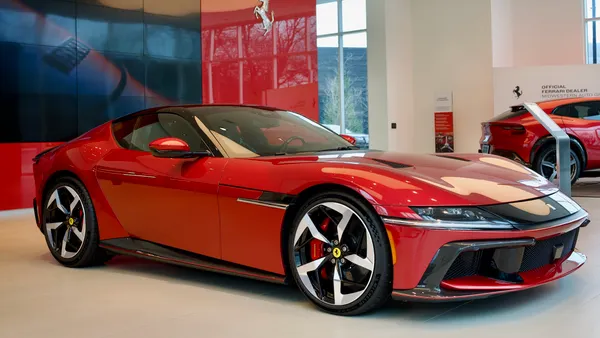Editor's note: This story is part of the WardsAuto digital archive, which may include content that was first published in print, or in different web layouts.
MUMBAI – Suzuki breaks ground on a Rs180 billion ($2.9 billion) car assembly and R&D complex in Western India amid continuing tension between the Japanese automaker and its Indian joint venture.
The facility, launched with an initial investment of Rs25 billion ($405 million), is located on a 640-acre (260-ha) site transferred to Suzuki from its Maruti Suzuki JV with the approval of the Gujarat state government.
Suzuki’s new, wholly owned Suzuki Motor Gujarat (SMG) subsidiary initially is investing Rs25 billion ($405 million) in an assembly plant with initial production capacity of 250,000 units. The investment is to reach Rs85 billion ($1.4 billion) when capacity is tripled to 750,000 units after three years.
Eventual plans are to double capacity to 1.5 million units and add a components-manufacturing center and R&D laboratories to take total investment to Rs180 billion ($2.9 billion). The cars will be built to Maruti Suzuki specifications and the JV also will handle sales and distribution.
Suzuki Chairman and CEO Osamu Suzuki declared during January’s groundbreaking ceremony“the start of a new era” for both the automaker and JV. Suzuki will build a state-of-the-art production plant allowing it to focus on productivity, efficiency and quality, while Maruti Suzuki will adjust the product mix based on demand. The CEO projects Maruti Suzuki’s market share will reach 50% by 2020, up from 38% at the end of 2014.
Critics of Suzuki’s decision to build vehicles in India separately from Maruti Suzuki – of which it holds a 56% stake – question whether a privately owned foreign company and a local, publicly traded and profitable automaker have fully taken into account the business, tax and ownership ramifications.
The Gujarat government approved the transfer of the plant site from Maruti Suzuki to SMG following lobbying by Maruti Suzuki Chairman R C Bhargava, who contends production plans will conform to Maruti’s marketing needs, provide a mix of salable models and control costs. However, there are no formal agreements or documents outlining these provisions and there is no guarantee Suzuki will follow them.
Besides the gray areas surrounding development of the SMG complex, Bhargava has other reasons to be defensive.
Bhargava said last year that under India’s Companies Act it was not necessary for Maruti Suzuki’s minority shareholders to approve the land transfer to Suzuki, but the JV nevertheless would seek consent as a matter of good governance. However, Maruti Suzuki has been unable to secure 75% of the votes of the minority shareholders who hold a 44% stake in the JV.
Bhargava has lobbied the government to amend the law to lower the approval vote to 50%, but regulators informally have told him the law is unlikely to be amended. For its part, Suzuki is proceeding with plant construction because it sees no legal roadblocks to doing so and apparently finds Bhargava’s good-governance principle irrelevant.
Defending the deal, Bhargava says if at any time Suzuki closes the plant, it will be transferred to Maruti Suzuki. He notes the Rs85 billion ($1.4 billion) Suzuki plans to have invested after three years equals Maruti Suzuki’s current cash reserves – money that could be used to buy land for an expanded Indian dealer network or even develop Suzuki plants in Africa or South America, although the automaker has not indicated it wants to do so.
Some Maruti Suzuki minority shareholders question why the Japanese company is making its own investment in India outside of its JV. Bhargava says Suzuki finds the SMG project attractive because it also has plenty of surplus funds and interest rates in Japan are low.
Criticized by Maruti Suzuki shareholders and rebuffed by the government, Bhargava is attempting to keep up appearances while hoping the controversy fades as development of the SMG operation proceeds.
However, he reportedly has conceded Suzuki ultimately “must look after its own interests. Maruti is not just remotely controlled by Suzuki – its management is directly controlled by Suzuki.”








